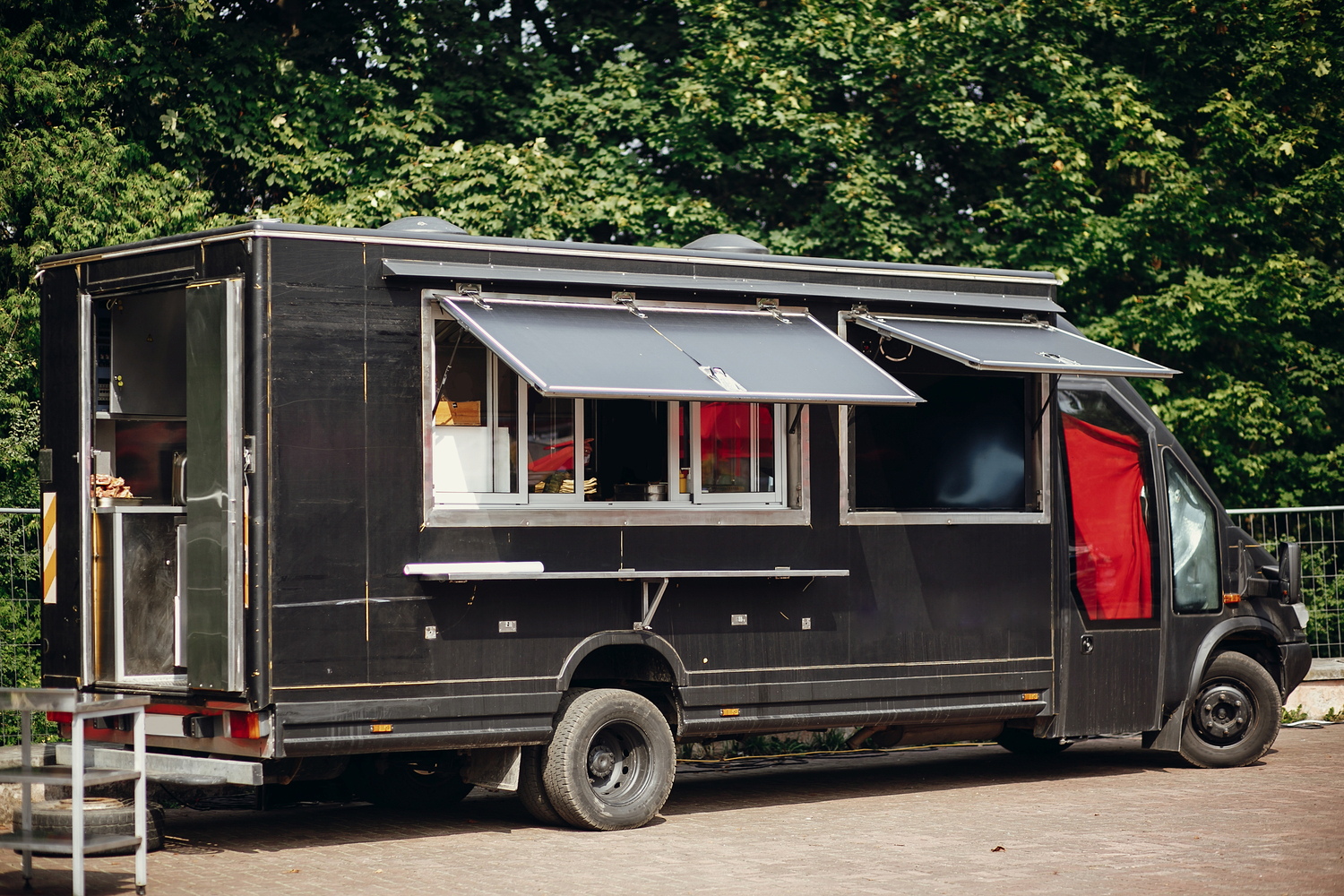Food trucks have become a culinary staple across Texas, turning street corners, festivals, and local parks into vibrant dining experiences. But what exactly is fueling this revolution in how we eat? The answer lies in the unique combination of affordability, creativity, and flexibility that makes food trucks stand out in Texas’s booming dining scene.
The Rise of Food Trucks in Texas
Over the past decade, food trucks have transitioned from niche, quirky vendors to legitimate players in the Texas dining scene. Cities like Austin, Dallas, and Houston are now known for their thriving food truck cultures, with vendors serving everything from gourmet tacos to fusion dishes and international street food. Texas’ warm climate and diverse population make it a natural fit for the mobile restaurant business, offering endless opportunities for food truck entrepreneurs to thrive.
Why Texas is Ideal for Food Trucks
Texas is a hotspot for food trucks due to its large, diverse population and thriving culinary scene. Cities like Austin, Houston, Dallas, and San Antonio have established food truck parks, festivals, and a culture that embraces mobile dining. But while the opportunity is big, so is the competition. To grow your food truck business anywhere in Texas, you’ll need a clear game plan.
Key Steps to Expand Your Food Truck
Step 1: Understand Texas Food Truck Regulations
Before scaling your food truck business, familiarize yourself with Texas’s regulations to ensure compliance and avoid costly fines. Each city in Texas has its own permitting process, so research local requirements:
- Health Permits: Obtain a Mobile Food Vendor Permit from the local health department. For example, Austin requires a Mobile Food Establishment Permit, while Houston mandates a Mobile Unit Food Dealer’s Permit.
- Business Licenses: Register your business with the Texas Secretary of State and obtain a Sales and Use Tax Permit for collecting sales tax.
- Parking Regulations: Cities like Dallas and San Antonio have specific rules about where food trucks can park and operate. Ensure you secure a Commissary Agreement for food prep and storage.
Step 2: Build a Strong Brand
A memorable brand helps your food truck stand out in the competitive Texas market. Your truck’s design, name, and logo should be as memorable as your food. To market your brand, dominate local searches and pull hungry crowds you need a trusted provider of SEO service in Texas. SEO can increase your brand’s online visibility driving higher profits.
- Logo and Design: Create a visually appealing logo and consistent branding for your truck, menus, and social media. Optimize your visual assets for online impact, ensuring they resonate with Texas audiences.
- Social Media Presence: Platforms like Instagram and TikTok are essential for showcasing your food and engaging with customers. Post high-quality photos and videos of your dishes, and use hashtags like #TexasFoodTrucks or #AustinEats. Targeted social media strategies can amplify your reach across Texas cities like Houston, Dallas, and Austin.
- SEO Optimized Website: Build a simple, SEO-optimized website with your menu, schedule, and booking information. SEO (Search Engine Optimization) helps your site rank higher on Google when people search for local keywords like “Houston food truck catering” or “Dallas food truck near me,” driving more traffic to your business.
Step 3: Choose the Right Location
Location is critical for food truck success. Where you park your truck determines your customer base—but just as important is how people find you online. Texas’s diverse cities and towns offer unique opportunities to grow both physically and digitally. The key is combining smart location choices with targeted local SEO to boost visibility in search engines.
If you’re launching a food truck in one of these cities, you need visibility—both on the street and on Google. Here’s how to dominate both:
- Austin: Known for its music festivals and vibrant food truck scene, Austin is perfect for creative and fusion concepts. Target food truck parks like South Austin Trailer Park & Eatery or trendy areas like South Congress and East Austin. Many small businesses work with an SEO agency in Austin to rank locally, attract steady foot traffic, and stay visible in competitive neighborhoods.
- San Antonio: Strong on family events, cultural gatherings, and tourism, San Antonio is ideal for food trucks serving classic Tex-Mex or street tacos. Focus on areas near the River Walk, Pearl District, or local festivals like Fiesta and partner with an SEO agency in San Antonio to strengthen local search presence.
- Houston: A sprawling city with a massive foodie population. Target business districts for weekday lunch crowds, or neighborhoods like The Heights and Montrose for weekend foot traffic. To stand out, you need the help of an SEO agency in Houston that understands how to boost your visibility in local searches and attract nearby customers.
- Dallas: With its mix of business hubs, art districts, and booming suburbs, Dallas offers plenty of high-traffic spots for food trucks—especially in areas like Deep Ellum, Bishop Arts District, and Klyde Warren Park. Make sure hungry locals find you first by partnering with a trusted Dallas SEO agency that knows how to boost your visibility where it counts.
- Fort Worth: Known for its blend of Western heritage and modern urban growth, Fort Worth is a great spot for food trucks serving everything from smoked brisket to gourmet burgers. Popular areas like Sundance Square, Magnolia Avenue, and the Stockyards draw steady foot traffic from locals and tourists alike. To get your business front and center, get a trustworthy SEO agency in Fort Worth that understands the local market.
Step 4: Expand Your Reach Through Events and Partnerships
Food festivals, corporate lunches, weddings, and private events are a goldmine. They often pay more than daily street sales and expose you to new customers. Here are some ideas
- Partner with local breweries and music festivals
Park outside popular breweries or sponsor a local band night—craft beer and good food go hand-in-hand. - Offer catering packages for birthdays, weddings, and business events
Customizable packages make your truck more attractive for private functions. - List your truck on catering platforms or apps
Use sites like Roaming Hunger, Best Food Trucks, or ezCater to get more bookings. - Join farmers markets and weekend pop-ups
These events attract a consistent crowd looking for unique, locally sourced eats. - Attend large-scale festivals and cultural events
Think rodeos, food and wine festivals, county fairs, and city-wide celebrations—huge exposure. - Host themed nights or limited-time menus
Taco Tuesday, Vegan Fridays, or monthly collaborations with guest chefs keep your audience engaged.
Step 5: Consider a Second Truck
Once you’ve built a strong presence in one city, think about expansion:
- Add a second truck in another part of Texas
- Partner with a local commissary kitchen to sell to-go meals
- Launch a small dine-in or takeout location
Just be sure your first truck is profitable and running smoothly before scaling.
You’ve Got the Truck—Now Build the Empire
Growing a food truck business in Texas requires a blend of operational efficiency, strategic marketing, and compliance with local regulations. By optimizing your operations, leveraging events and partnerships, dominating local SEO, securing funding, and planning for long-term growth, you can turn your food truck into a thriving enterprise. Texas’s diverse cities, business-friendly environment, and food-loving culture provide endless opportunities to scale your business.
The key is pairing your street presence with a smart digital footprint. From SEO to social media to event partnerships, every move you make builds momentum.
Your truck is just the beginning. With the right strategy and support—from local partnerships to a Texas-based SEO agency that knows your market—you can turn one truck into a full-fledged empire.





